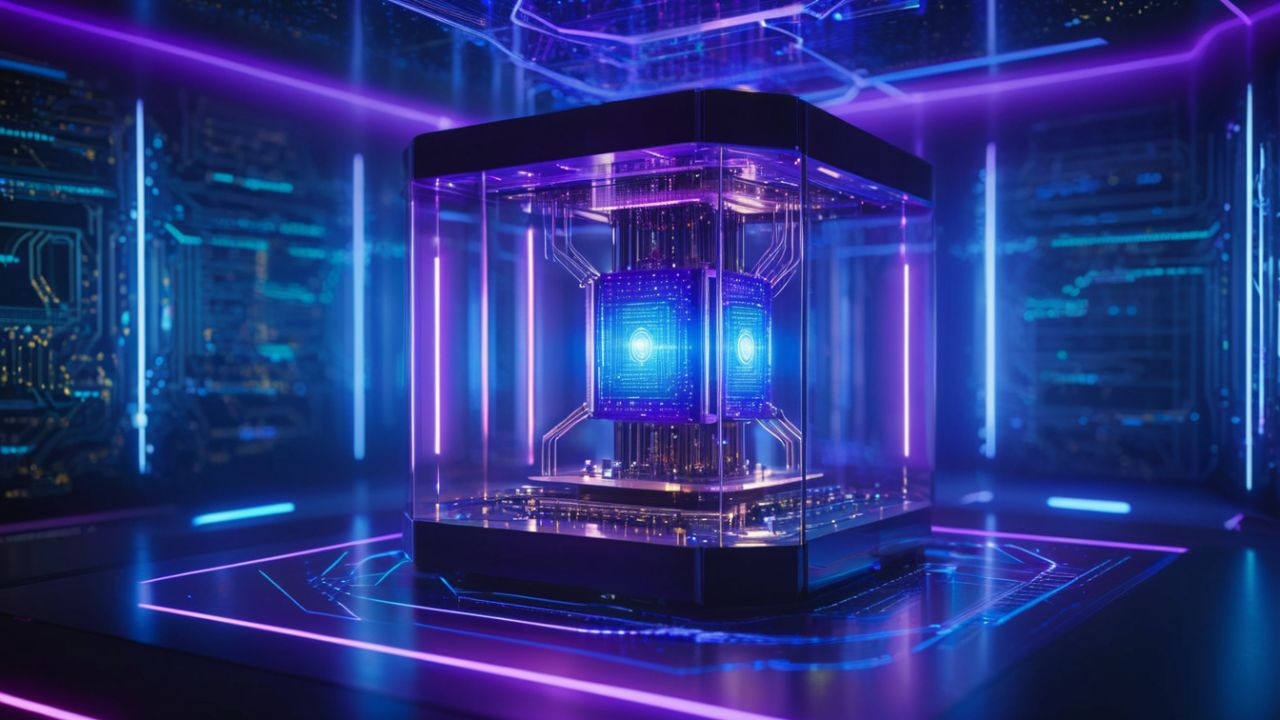Quantum computers are all the rage today. But why are they so important, how soon are we going to use quantum artificial intelligence? Play video games on one or convert our files, videos, and images?
Here are 10 Things About Quantum Computers that Everyone Should Know About:
#1. Quantum Computers – The Beginning
Quantum computers were proposed by the famous physicist Richard Feynman in his 1982 work “Simulating physics with computers”. He argued that to simulate the world of atoms, the normal “classical” computers will not be sufficient. He, therefore, proposed to use strange properties of quantum physics to be better able to describe these situations. But, quantum computers turned out not to be useful only for physicists!
#2. The Basis of Quantum Computing is a Bit Like the (Schroedinger) Cat
Quantum computers use “qubits” instead of zeros and ones – bits in classical computers. Qubits are not only ones and zeros, but also any arrangement of a “zero” and “one”, for example, 0.4*”zero” + 0.6*”one” is one valid state of a qubit.
Why is the qubit like Schroedinger’s cat? It can be simultaneously dead (zero) and alive (one). This freedom gives an advantage in some difficult computational tasks. If you want to double the computational power of a standard computer, you need to double the number of bits. In the same sense, you double the power of the quantum computer by adding only one extra qubit.
#3. Hackers Love Quantum Computers
They can be used for breaking cryptographic algorithms. Some cryptographic algorithms rely on the fact that it is very easy to multiply any two simple (prime) numbers, for example, 11 x 13 = 143. On the other hand, it is more difficult to factor 143 into unknown factors. The problem is even more difficult for huge numbers.
Humans, as well as classical computers, struggle with such computations. But, for quantum computers, this task is easy and fast! Is your cryptocurrency wallet safe with the onset of quantum computing? According to the latest research, your Bitcoin is safe (for now).
#4. Quantum Computers May Help You Get Home After a Pub Crawl!
Another type of hard problems for humans and classical computers are various optimization problems. The most famous of those is the “traveling salesman” problem: find the shortest path between several cities/pubs that visits each place only once and return “home”, to the first city. Even for 20 “cities”, the problem becomes very difficult to solve (and this amount of beer may be difficult to handle!). Quantum computers may bring an advantage for calculating such practical problems.

#5. Google Loves Quantum Computers, Too
Quantum computers are at the forefront of research right now, the first time it was demonstrated that quantum computers can solve some problems faster than classical computers was in 2019. This “quantum advantage” was demonstrated by Google researchers. So, big computer companies as well have an interest in this field.
#6. Qubits Are Unstable
Quantum computing at present needs extremely low temperatures (just a fraction of a degree above absolute zero!) to cool the computational circuits. This makes it very complicated to operate a quantum computer, as each device requires a team of experts. But this was also the case with standard computers up until the 1970s when the advancement of technology made it possible to get a true personal computing experience. So, despite current constraints, do not rule out a personal quantum computer yet!
#7. But…
…even at temperatures close to absolute zero, the errors due to environment creep like noise into the computation.
Many sophisticated mechanisms of error correction have been invented to deal with this problem. Very recently, a team at ETH Zurich has succeeded in automatically correcting the errors in their 17-qubit quantum computer. This has been an important breakthrough to practical quantum computing in the future.
#8. Quantum Computing: A Race for Innovation
Many different companies: D-Wave, Google, IBM, etc. develop their own quantum computers, creating a quantum computational arms race. Still, the field is open for universities and startups. This is a field where a clever idea really can go far.
IBM has produced a quantum computer with 127 qubits, while D-Wave boasts several thousand qubits. However, because the two systems do not work in the same way, the two numbers are not directly comparable.
#9. This Brings Us to the Next Point:
Unlike classical computers, which are based on silicon chips, there is not yet a standard technology for quantum computing. Quantum physics is seen in all matter at low temperatures, and it stands to reason that one can make quantum computers in various ways. This is indeed the case now.
Of course, if it will be possible to make this kind of computing accessible at room temperature, there will probably be a standard technology coming up. Given the resources and the interest in the scientific community, it will be interesting to observe how long it will take!
#10. What is Up with Quantum Artificial Intelligence?
Quantum computers have an advantage at processing large quantities of data. Neural networks are just a challenge like that. Here quantum computing promises speedup and the ability to tackle larger and more complex problems.
Once quantum computing becomes affordable and simple to use, it will no doubt be used for processing highly demanding consumer applications as well: video, augmented reality, etc.
In Conclusion
As stated in the Nature article, quantum computers might one day run revolutionary algorithms. The multitude of promising news that we read more and more about in the media, leaves an impression that quantum computers could quickly become part of the mainstream and have a more practical use.
However, closer to the truth are scientific predictions based on which significant progress in quantum computing can be expected over the next few decades. Possibly in a decade or so, if we are lucky.

